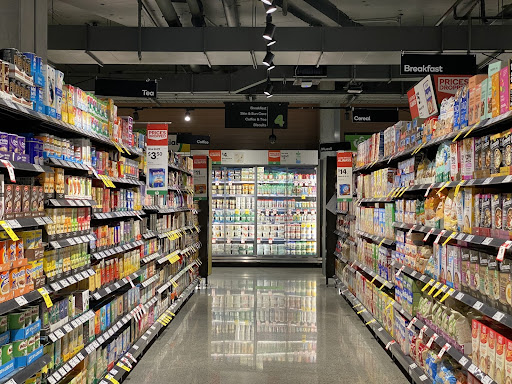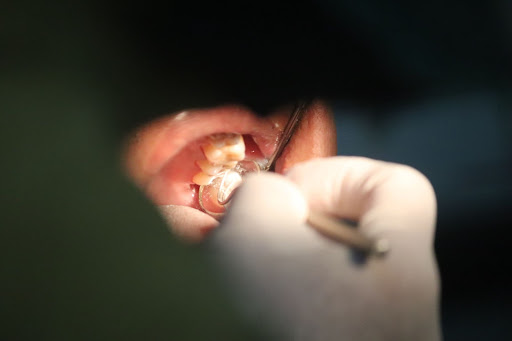
The prevalence of sugar in modern diets and the cost on our teeth
Almost 70% of Canadians consume more sugar than is recommended, and many of us are addicted to sugar without even realizing it. It is widely suggested and has been argued that sugar is almost or equally addictive as cocaine. Sugar addiction has become a pandemic of its own kind and is at the root of many basic and major restorative dental work that we do at Blok dental in Saskatoon. In this blog we explore the addictive nature of sugar, how it has secretly infiltrated most modern food products, the consequences for our oral health, and how to minimize and manage damage to our teeth caused by dietary sugar.
The impact of added sugar on our overall health
Sugar consumption increases the risk of chronic diseases such as diabetes, heart disease, and various cancers. Among these are oral health risks such as gingivitis, periodontal disease, tooth decay, and even tooth loss. A new study in the Canadian Journal of Public Health found that medical costs, lost productivity and premature mortality from these diseases costs billions of dollars every year. “Imagine if the real cost to society of the food you buy at the grocery store was built right into each product’s price. Everything with added sugar would cost a whole lot more”, according to University of Alberta researchers in a new study in The Canadian Journal of Public Health. Read the article here: Excess Sugar Consumption Costs Canada’s Health-Care System $5 Billion Each Year.
 The grocery store or the sugar shack??
The grocery store or the sugar shack??
A vast majority of the processed or packaged foods we find in the center aisles of modern grocery stores (think, any aisle other than the produce and meat sections) contain added sugars, which come with hidden costs that aren’t reflected in the price we pay at the check-out aisle. For many people, these costs come much later, in the form of chronic diseases and yes—dental health problems that are very costly to treat.
Why is there so much sugar in our food products?
1. Increased shelf-life. Sugar plays a role in the preservation of many types of foods including convenience foods, pre-packaged or prepared meals, and even foods that are marketed as health food products.
- Increased sales. Adding sugar to certain food products is a clever strategy to promote customer loyalty and return sales due to its highly addictive quality. Anything with added sugar will chemically motivate us to buy the product again because it makes us feel good by releasing endorphins in a similar way to other addictive substances.
The infiltration of sugar into modern diets
You might be surprised to learn just how prevalent sugar is in many common food options. Food products marketed towards kids are especially sugar-ladden, concerning kid’s dentists everywhere. Of course we expect to find sugar in popular snack foods, cookies, breakfast cereals, and fruit juices, but you might be surprised to find excessive added sugars in less obvious places and even in foods we don’t consider to be sweet-tasting such as:
- Condiments such as BBQ sauce and ketchup
- Granola bars and protein bars
- Flavored or low-fat yogurts
- canned pasta sauce
- premade or concentrated soups
A single can of soup or cup of yogurt can contain more than the average daily recommended intake of sugar. Don’t take our word for it—the next time you’re passing through the center aisles at the grocery store, stop and read a few labels to see just how pervasive added sugar is. Read How to spot — and avoid — added sugar.
How does sugar affect my oral health?
Sugar is really the first step in almost every common oral health concern. When our teeth and gums are exposed to sugary food and drinks, we feed the bacteria that contribute to oral health issues such as bad breath, tooth decay, and gum disease. Oral plaque bacteria that feed on sugar convert it to acid, which upsets the microbiome of the mouth and allows plaque bacteria to reproduce and proliferate, creating a highly acidic oral environment. This results in saliva with lowered pH which results in enamel erosion, tooth demineralization, and puts you at risk for developing cavities, bad breath (halitosis), and other oral health concerns. To make matters worse, these bacteria will accumulate and reproduce in deposits of sticky plaque along the gum line, causing inflammation that leads to gingivitis and gum disease.
Dentist’s best reminder: prevention costs less than Saskatoon treatment
We would rather see you twice annually for a checkup and dental cleaning than have to perform costly and potentially invasive or painful treatments to address well-developed oral health problems resulting from excessive sugar consumption and poor oral home care.
Tips to reduce exposure to sugar and reduce damage from sugar exposure
- Avoid sugary drinks, which act as a sugar-rinse allowing sugars to reach every corner of the mouth and in between teeth.
- Use a straw to reduce contact of sugar liquids on teeth.
- Read product labels at the grocery store and re-think some of your go-to high-sugar choices.
- When you do consume sugar, don’t let it rest on your teeth for long.
- Keep your mouth clean! Brush and floss twice daily, or more if you are consuming more sugar.
- See a dentist twice annually regardless of your sugar intake.
Oral health benefits of reduced dietary sugar
- Cleaner teeth with less plaque buildup for bacteria to grow on your teeth.
- Fresher breath.
- Healthier, more resilient saliva with balanced pH, promoting saliva’s natural ability to combat acid wear and erosion.
- Fewer cavities and tooth decay.
- Reduced risk of gingivitis and gum disease.
- Reduced risk of costly and invasive oral health interventions.
- Reduced risk of dental emergencies.
Regular dental checkups and professional cleaning minimizes damage from sugar
Visit Blok dental for the best way to prevent pesky dietary sugar from compromising your oral health! Regular maintenance with professional dental services in Saskatoon makes a lifetime of difference when it comes to protecting your teeth against sugar. As always good home care between visits further reduces your chances of ever needing costly treatments to preserve your smile longterm.

 The grocery store or the sugar shack??
The grocery store or the sugar shack?? 